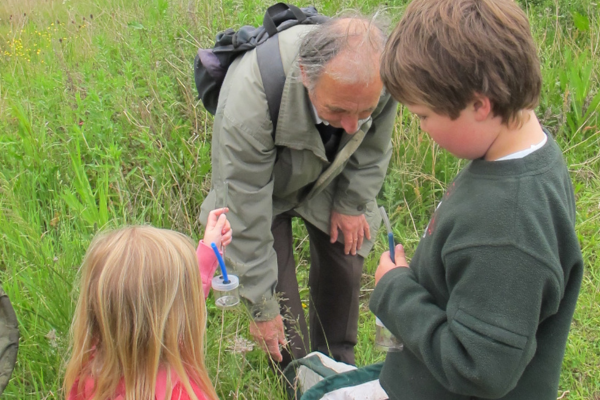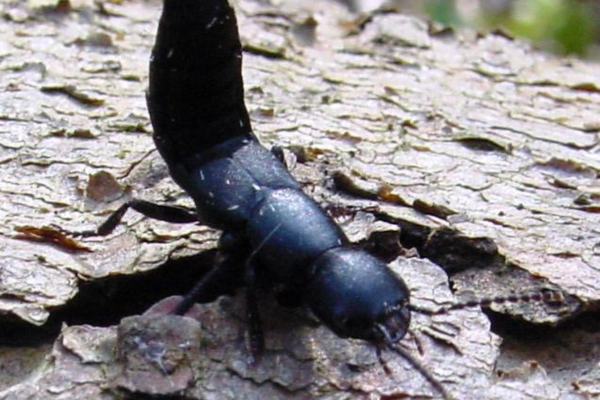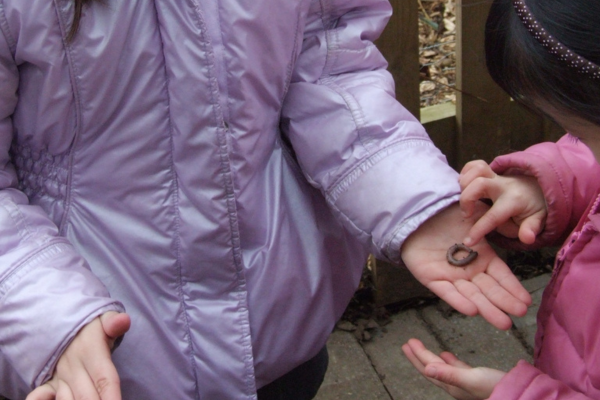- Home
- News and What's Going On At Leaders
- Doorstep Safari - Wildlife for Kids
Doorstep Safari - Wildlife for Kids

Getting involved with nature is vitally important for development, physical and mental health. To do this does not require expensive trips on safari or journeys into the heart of our national parks. Wildlife in abundance is on all our doorsteps and there is nothing better for kids than to go on a backyard or local park safari.
Birds are easy to spot and hear but it is the bugs that are eminently more catchable for study and without them we would see none of the larger fauna such as birds and hedgehogs. So where should we start with our doorstep safari?

Lift a stone, log or small slab under here a whole range of mini-beasts can be found such as slugs, woodlice and millipedes all of whom play important roles in breaking down decaying plant matter and returning it to fertilise the soil. Alongside these detritivores you can also find the predators of the mini-beast jungle ground beetles, centipedes and rove beetles including the scorpion like Devils Coach Horse.
There is also a chance you might discover an ant colony, the ants play a key role as soil engineers but also are known for herding aphids much like cattle to milk them for the sweet honeydew they produce, in winter you may find aphids in the ant nest being kept safe from the cold.

Now let's look above ground in the flower borders where you are likely to see a host of active pollinators: bumblebees, honeybees and solitary bees but also the hoverflies that mimic the appearance of bees and wasp right up to the giant Hornet Hoverfly. There will also likely be butterflies which are easy to identify from their bright wing patterns and maybe the odd day flying moth such as the Cinnabar Moth of the 6 Spot Burnet Moth both with flashes of crimson on otherwise grey bodies. Look very closely and you can spot the more elusive Thick-legged Flower Beetle, a green beetle that is also a key pollinator.
Find a stem with aphids and soon you should be able to find some ladybirds; most can be named by counting their spots, the more common being the Seven-spot and the smaller Two-spot. Ladybirds feast on aphids; you may also spot small spiny dinosaur-like ladybird larvae alongside the adults.
In the long grass you may spot grasshoppers and or crickets hopping great distances to avoid capture or chirping their legs like a new percussion orchestra. Look out for spider webs strung across spaces particularly the massive webs of the Garden Cross Spiders often found sitting in the centre of their web identifiable by the cross upon their abdomen like some bug crusader.

Should it rain really hard then you may spot earthworms coming to the surface to escape the waterlogged ground some can burrow down several metres deep helping with drainage and improving the soil.
In the summertime on a humid day a migration will occur as fascinating as the movement of Wildebeest as flying ant day will see the ground and air thick with winged ants. On other days you may spot baby spiders dispersing using webbed parachutes to be carried by the wind to pastures-new.
If you live near a pond or lake, then in the summer you will likely spot dragonflies and damselflies flying by with their iridescent bodies and amazing aerial skills hunting down other flying insects. As autumn approaches watch out for the crane flies or daddy long legs which appear in huge numbers as they live just 24 hours as an adult lacking even a mouth to drink with. If you are very attentive, watch over your lawn and you just might see a crane fly emerge from its leather jacket larval form, the emerging cranefly is translucent white at first taking on colour as the new skin hardens in the air.
With so much wildlife to explore on our doorstep we can encourage children to mix with nature and discover wildlife. If you wish to help these intrepid doorstep explorers consider getting them some clear pots or mini-beasts, a sweep net and microscope and then for the more adventurous how about a vivarium or similar so they can study bugs in their room.
Guest post by Paul Hetherington, Director of Fundraising and Communications at Buglife - Leaders Romans Group are supporting several wildflower restoration projects around the UK in 2023-24 in partnership with Buglife and GreenTheUK.
Looking for advice?
If you're looking to let or sell your property, we can help. Get in touch with your local branch or book in for a property valuation.

Contact Us
Got a question, general enquiry or something else?
You may also like
Since we started in 1983 we have grown to one of the UK’s largest property groups, we can save you time and money by offering a range of services and expertise under one roof.



